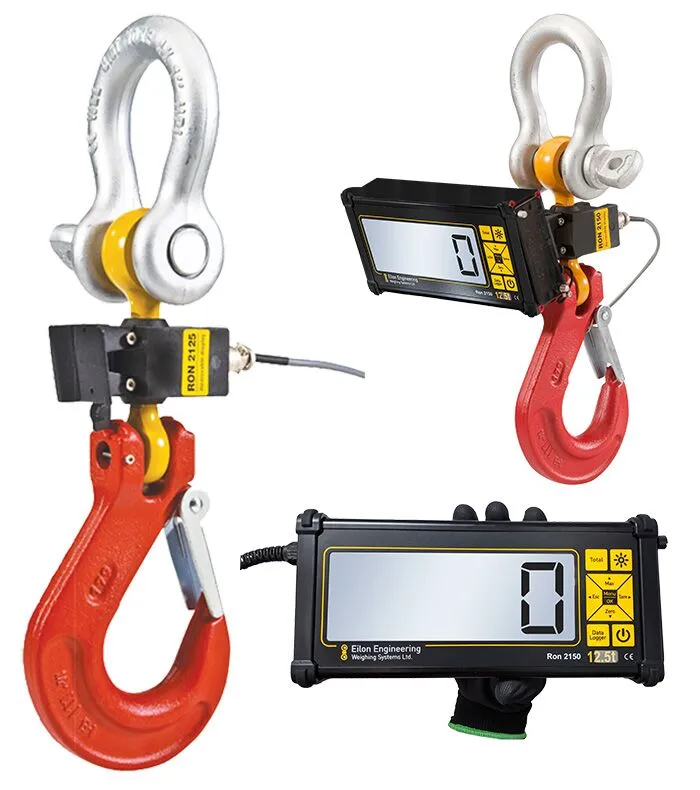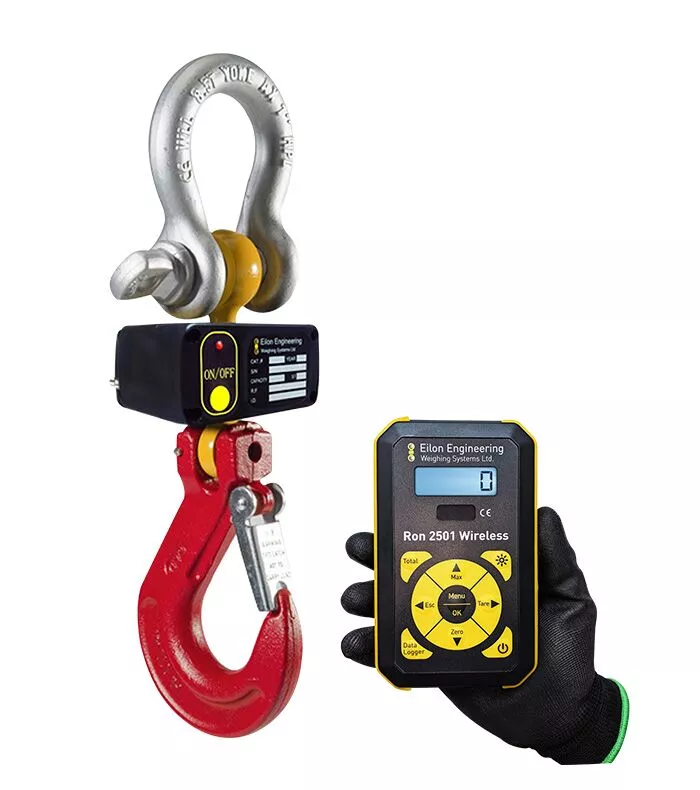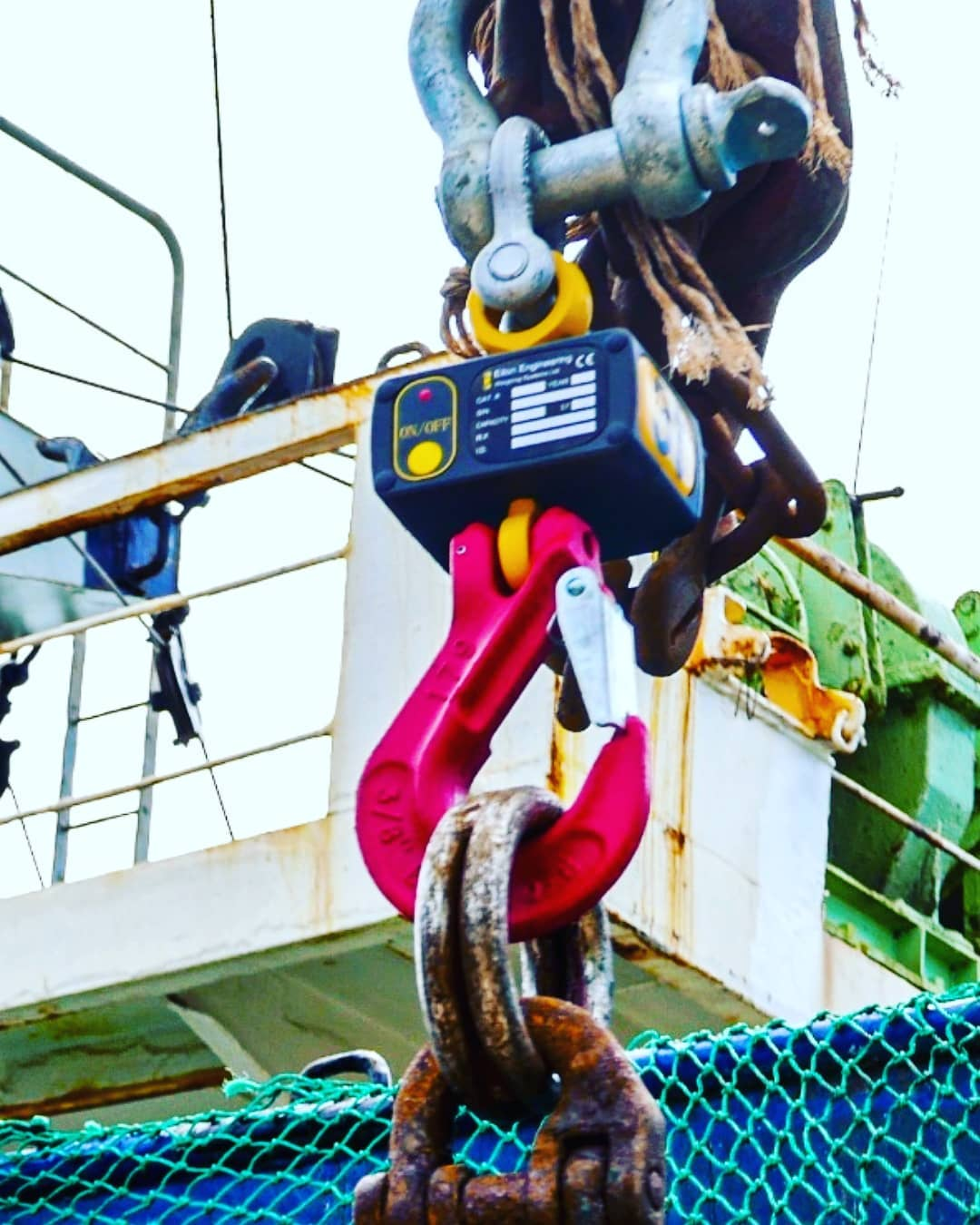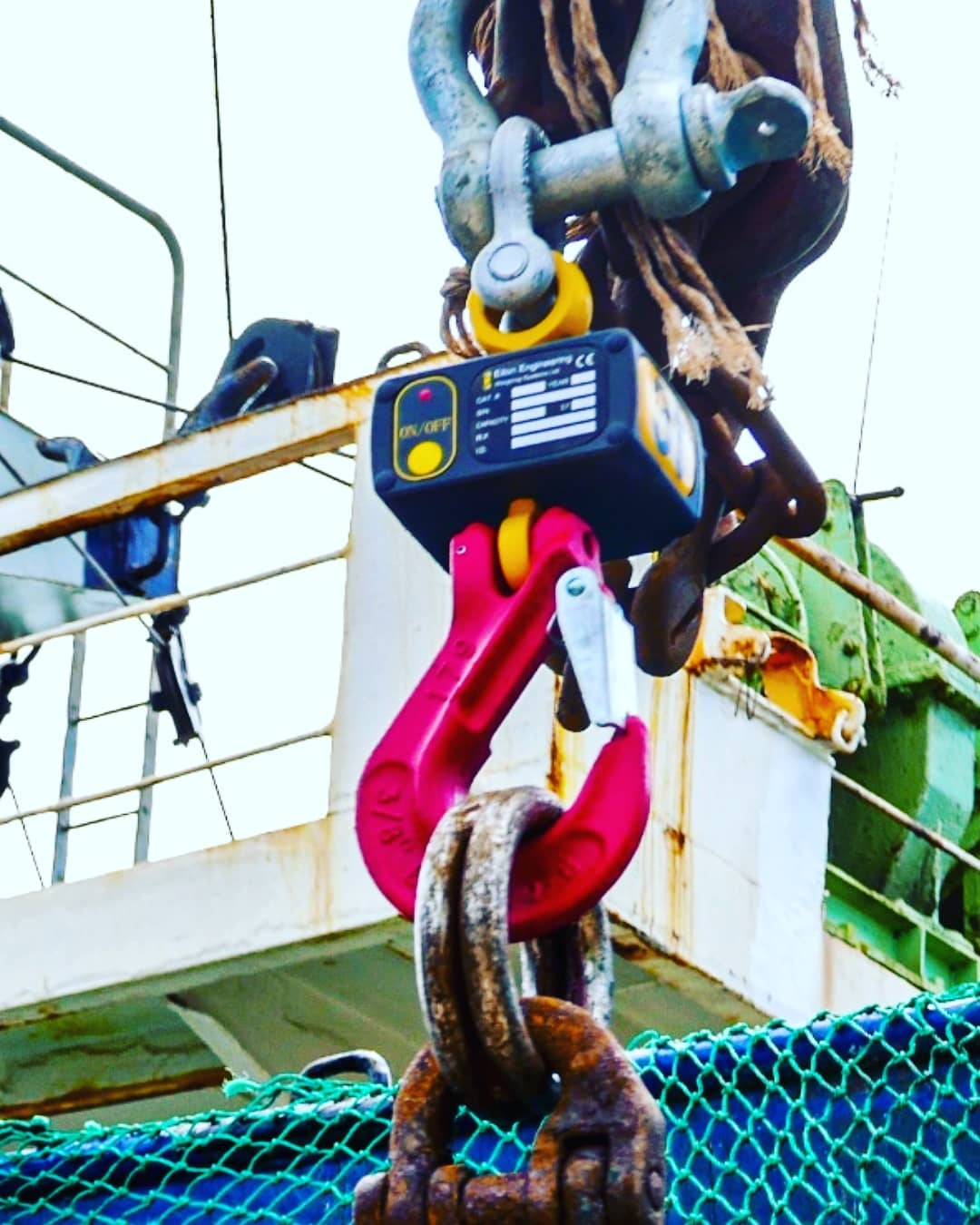What is a Crane Scale?
In the market for a crane scale, but need more info? In this article, you’ll learn everything you need to know about them, including types of crane scales and their benefits.
What is a crane scale?
Crane scales are a specialized piece of industrial weighing equipment designed for use with cranes and other overhead lifting equipment, such as a hoist, or winch. They’re capable of weighing large and heavy objects with precision and accuracy.
Crane scales typically have an upper shackle and lower hook, which are attached to a central load cell, which measures the weight or force being applied. The weight is then displayed via a readout, which can either be remote or integrated into the scale itself.
Crane scales are useful for ensuring the safety and efficiency of lifting operations, as well as for monitoring and recording the weight of products or materials. They are used in a broad range of industries, and have countless uses in various industrial applications.
But not all crane scales are created equal. In fact, there’s more variety than you might think in the types of crane scales available in today’s market.

Types of crane scales
Generally, we can break crane scales into two main categories: digital/electronic and analog/mechanical.
Analog vs. digital crane scales
You might be surprised to learn that analog/mechanical crane scales still exist in the digital age—but indeed they do.
While they are cheaper to manufacture, they are generally inferior to their digital counterparts. Analog scales can be accurate to some degree, however, their accuracy can never match that of a quality digital scale. Further, their lifespan is much shorter than that of an electronic scale because their mechanical components tend to wear out faster over time.
Digital scales also have superior reliability. Not only are the digits on their LED screens much easier to read compared to the dial on an analog scale, many digital models offer remote readouts that can safely be read from a distance.
Next, analog scales lack many of the options and conveniences that a quality digital weighing system affords. For example, an analog display will likely show measurement in one unit of measurement—two at most. Yet a digital scale allows operators to effortlessly display weight measurement in any common unit of measurement.
Digital scales also offer options that analog scales simply aren’t capable of, including things like TARE, ZERO, MAX, and the ability to store and transfer measurements to a computer through data logging.
Finally, the largest analog/mechanical scales have a maximum lifting capacity of only 25 tons. Compare this to digital crane scales which can reach max capacities of 300 tons! So when it comes to high-capacity scales, you’ll have to go digital.
|
Digital vs. analog crane scales |
||
|
Feature |
Digital crane scales |
Analog crane scales |
|
Easily portable weighing device |
✅ |
✅ |
|
Easy/remote readability |
✅ |
❌ |
|
Flexible units of measurement |
✅ |
❌ |
|
Tare, Max, Zero, options |
✅ |
❌ |
|
Digital measurement storage |
✅ |
❌ |
|
Max lifting capacity |
300 tons |
25 tons |
|
Accuracy level |
High |
Medium |
As you can see, in the majority of cases, a modern digital scale will be the better choice, especially for high-capacity scales.

Wired vs. wireless crane scales
Once you’ve decided that you need a digital crane scale, your next choice will be a wired vs. a wireless system. Let’s compare them.
Wired
In wired overhead weighing solutions, the crane scale’s load cell is connected to a display via cable. The display can be hand-held or attached to the load cell body, depending on the model.
Wired crane scale advantages:
- Lower cost compared to a wireless system
- Needs fewer batteries to operate
- Isn’t dependent on radio signals or susceptible to interference
Wired crane scale disadvantages:
- Less mobility and flexibility for the operator
- Danger from tripping or entanglement hazards
- The cable can be damaged by wear and tear or harsh environments
- Longer and more complex installations and teardowns
Wireless
Wireless crane scales represent the pinnacle of modern scale technology. They use radio frequency (R.F.) or Bluetooth to wirelessly transmit measurement data from the load cell to a remote indicator. A wireless system is usually advantageous over a wired system for several reasons.
Wireless crane scale advantages:
- Affords maximum flexibility and ease of use to operators
- No risk of cable damage or tripping accidents
- Allows for additional readouts to be connected to the same system
- Quick and easy installation and teardowns—no cables to deal with
However, there are some disadvantages to a wireless system:
Wireless crane scale disadvantages:
- Slightly more expensive than a wired systems
- Requires more batteries and more frequent charging
- Potential for signal loss or interference under certain conditions
|
Wired vs. wireless crane scales |
||
|---|---|---|
|
Feature |
Wireless crane scales |
Wired crane scales |
|
Easily portable weighing device |
✅ |
✅ |
|
Zero tripping hazard |
✅ |
❌ |
|
Maximum mobility |
✅ |
❌ |
|
Multiple remote readouts |
✅ |
❌ |
|
Quick and easy installation |
✅ |
❌ |
|
Susceptible to interference |
❌ |
✅ |
From the table above we see that a wired crane scale is the best choice in a majority of applications.

Digital crane scale benefits
Digital crane scales have benefits over other types of scales, including:
- Mobility: crane scales are portable and offer flexibility in weighing operations.
- Space Efficiency: they save floor space compared to platform scales.
- Safety: Direct measurement during lifting reduces manual handling risks.
- Real-time monitoring: advanced features allow for remote control and data logging.
- Versatility: accommodate various load sizes and shapes efficiently.
Crane scale applications
A heavy lifting scale can be found in a variety of industrial settings and applications, including:
- Warehouses: for weighing palletized goods and inventory
- Construction sites: to measure materials like steel beams and concrete blocks
- Shipping yards: for determining the weight of cargo containers
- Manufacturing facilities: to weigh raw materials and finished products
- Recycling centers: for measuring scrap metal and recyclable materials
- Agriculture: to weigh bulk commodities like grain and livestock
- Many others
Eilon Engineering: 50 years of excellence
Eilon Engineering has a proven history of manufacturing high-quality crane scales and other weighing systems. Our systems are regularly used by high-profile clients including NASA, Boeing, SpaceX, and countless others.
Learn more about our company and products:
Get in touch today
Phone:
US/Canada/Int'l: 1-888-778-8064
UK: 0800 8620354
Email:
sales@eilon-engineering.com











.png) Barcelona Jan 30-Feb 2
Barcelona Jan 30-Feb 2